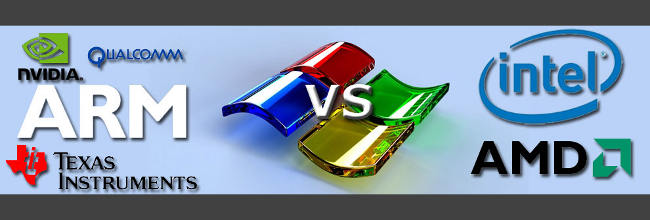Developeronomics ?
2011-12-21 00:03:45

I have recently stumble upon this article:
http://www.forbes.com/sites/venkateshrao/2011/12/05/the-rise-of-developeronomics/
An interesting point of view about software development. I've continuously been in contact with fellow IT engineers who are afraid of losing their job, afraid that getting old will make their skills obsoletes, they only see themselves as mere disposable pawns, as meat ready to be sold at the market.
On the contrary, in this article, author sees software developers as the center of an emerging world, the ones that create value out of nothing. Software is everywhere and surround us on our everyday life but, still most developers have no clue about how to take profit from the situation.
Most IT developers are anonymous nobodies(and beeing confortable with it), while others make their way through the Silicon Valley http://techcrunch.com/2010/11/11/google-offers-staff-engineer-3-5-million-to-turn-down-facebook-offer/ , where their increasing wages are compared to an economic bubble on its own, others make it big selling iPhone apps, others in the financial industry.
I think that software development is a great job and that there are many opportunities to make a great living out of it. One has simply to find its way. Which is not necessary easy : it requires an important self-dedication.
Why is Android laggy ?
2011-12-08 01:43:07
https://plus.google.com/105051985738280261832/posts/2FXDCz8x93s
Although the difference tends to disappear with the more and more powerful devices available, it's true that Android has always been much less responsive than iOS since the beginning.
Dianne Hackborn try to explain the reason of all this with technical details. While Android has made mobility the main focus in its design, it completely overlooked on important thing, maybe the most important : responsive UI with a touch interface, if the display out is not able to match the user's speed and give feedback to user quickly enough then whole point of touch as human-machine interface (ie: to make the human body interact directly with the computer data representation) vanishes.
This point appears as a major flaw in Android design, a flaw that wouldn't be fix until a major rewrite of the UI framework code.
Although the difference tends to disappear with the more and more powerful devices available, it's true that Android has always been much less responsive than iOS since the beginning.
Dianne Hackborn try to explain the reason of all this with technical details. While Android has made mobility the main focus in its design, it completely overlooked on important thing, maybe the most important : responsive UI with a touch interface, if the display out is not able to match the user's speed and give feedback to user quickly enough then whole point of touch as human-machine interface (ie: to make the human body interact directly with the computer data representation) vanishes.
This point appears as a major flaw in Android design, a flaw that wouldn't be fix until a major rewrite of the UI framework code.
Shifting momentum between semiconductors companies
2011-11-30 18:12:05

As the mobile and embedded device market rise, once dominating companies are slowly fading away while small contenders are gaining more and more ambition.
Intel which is by far the most successful CPU company is facing now a great challenge.
Their flagship in the mobile industry : the infamous Atom is a dead end, not enough powerful for the notebook market and not enough power efficient to be integrated in the MID and phone market where integrated SOC proved to be much superior. Old x86/PC architecture failed to turn any good in the mobile world.
Although Intel still has the upper hand on the performance destkop and server market, the announce of ARM massively parallel SOC put the server at risk, while Windows 8 expected to run ARM cpu will eventually lead to ARM coming to the desktop.
Intel's main asset the x86 instruction set also failed to deliver an interesting product on the GPU market with the dead attempt Larabee.
Nvidia can now hope for a brighter future thanks to its new comitment in embedded device. Stuck in desktop market between Intel and AMD/ATI, driven out of the chipset market, it was reduced to the niches of pc gaming and GPGPU market. Thanks to the Tegra, which is considered the best SOC for Android (at least until recently), Nvidia is back in force. Should Apple used an Nvidia Soc in a future iPad or iPhone and it will be like a winning lottery ticket for Nvidia.
AMD now is facing trumendous difficulties, over-engineered by Intel on the desktop market, it's server oriented cpu the Bulldozer has subpar benchmarks, AMD has also missed the embedded market take off, as well as AMD for the CPU or ATI for the GPU, their so-called "Fusion" (CPU/GPU in the same die) hasn't given birth to any game changer product. Which is a huge blow. Tide to the shrinking destkop PC market, I wouldn't bet on the future of the company without a major strategic change.
Rework by Jason Fried
2011-11-27 21:43:44

Rework is an interesting book written by the founders of 37signals.com, those who created the Ruby on Rails framework. It this books they describe their non-conventional workings methods, and how they started their business : marketing, looking for investors.
There is no revolutionnary idea in this book, but I liked and I share most of their view about work, collegues. 37signals.com is a company that I'd love to work for, and if I was to start my own business, I will surely use the same approach. No abusive work meetings, having a real close relationship in a work team, not just people working together, having a real team spirit (people about the same age, sharing the same interests, people that really respects each others, able to act on equal terms) is important, especially when things are getting rough.
I also like this, very american, positive way of thinking and attitude that shines through the whole book.
Apple Appstore vs Android Market debate
2011-11-25 13:39:08

http://www.appleinsider.com/articles/11/11/21/googles_android_market_estimated_to_earn_just_7_of_what_apples_app_store_makes.html
There is always the same kind of debate going comparing Android Market to Apple's Appstore in term of which is the most profitable and end up being another battlefield for fanboys.
The truth is that the Appstore is certainly the most profitable. Not only because it is much older and well established but also due to the users base profile which are more likely to spend money for apps.
From a personal interest, I wish to be more committed into the apps business and knowing that developing for Apple is more likely to bring money put my heart into balance. I think the Android Market is still young and has not reach maturity. The fact that music and films can also be bought on Android Market is a great move toward apps monetization as users will more and more have the "buy" reflex.
Android's market share are strong but everyone now expect it to materialize into a profitable business. I hope this maturity will eventually come. Meanwhile I'm experimenting different kind of apps and use Android as a test bed for mobile device concepts. I'm not stubborn, and I still look and Apple environment because it's where the best opportunities are and to foresee how Android will become, when all will be put up in place.
Doom 3 source code released !
2011-11-23 11:25:51

I'm not fan of ID Software game design, since doom, quake, I find it, kitsch and...uninviting to say the least. But there is one things that I'm sure of, is that their game engines where always the ones that brings industry standard to a new level over each new release.
Freely releasing their former engine's source code is great and deserve some high respect, everyone considers this kind of code to be strategic for a company.
I'm wondering the point of all this, as game engine code is very complex for hobby developer, the only peoples that really going into it are competing company engineers and other serious player in the game industry.
Anyway, it's the mark of a certain work ethic (knowledge sharing), and show how much they are confident in their ability to improve their code, so that they could afford to give to the public the older version.
If skilled developers release their own work without fear of the competition, why wouldn't I do the same ! Or maybe it's because they are skilled that they can afford it.
Marketing is important
2011-11-21 10:32:47

My downloads numbers on the Android Market are far from stellar I must say.
That concerns me quite a bit even though these are free apps.
At least I've learn interesting things :
1. Even for free apps, making an attractive Android market page is important. Users are not rushing in to download anything, especially since the Android Market is really crowded.
2. Casual works more than hardcore. People are still not using their phone to play "big" games or apps. Lincity4droid score is pathetic, since I'm targetting a "niche" market (tablets + heavy gaming).
I'm planning to release, commercial (or ad supported) apps, and these first experiences gives me great feedback over what kind of apps I should target, and how aggressive I should market my apps for them to be successful.
Cloud, the missing link
2011-11-16 11:58:54

I believe the future lie in seamless computing : computer device everywhere, on every form, all strongly connected : Computers, smartphones, tv, cars, fridge...
Cloud is major element for this emering future because it's a way to access personal data from anywhere. Cloud is the pipe that will connect all these devices. In the future, local storage will only be minimal.
You will buy musics, films and be able to listen/see it from any device, work on any documents, on your mobile, then on your computer, then on your tv, even play games from any device seamlessly. That's why I believe that Google has a geat role to play in this emerging future, being the major player in the world of cloud computing.
Amazon Fire, Barn&Nobles Nook : here comes the new challengers !
2011-11-13 22:59:33

New entry level tablets are coming to the market, sadly, only in the US. They are cheap : 200$, they have a nice but slightly small 7 inches IPS screen and a good dual core cpu which place them above lots of chinese contenders at the same price tag. Backed by their respective company, they will offer access to many media right out of the box.
Great deal ? Not, in fact, they are tightly bound to their manufacturer environnment, that mean : no Android Market, no GPS, I assume, very little capabilities, but sure no limited access that Amazon or B&N internet shop.
In fact although they are Android tablets, they don't retain any of the goodies : openess, Google eco-system...
Ubuntu 11.10 Unity : desktop disappeared
2011-11-12 09:43:03
Today, I've woke up to find out that my whole Ubuntu 11.10 Unity desktop has just vanished with only the top screen menu bar remaining.
I've used these commands to save the day:
I've used these commands to save the day:
gconftool-2 --recursive-unset /apps/compiz-1
unity --reset